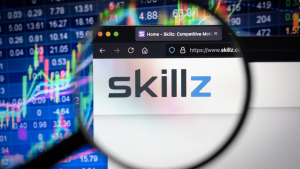The Penny Stock Minefield: 3 Stocks to Steer Clear Of at All Costs
The stock market’s been on an epic run over the past several months, and analysts expect even bigger gains ahead. Much of that enthusiasm is tied to potential interest rate cuts later this year. Thus, this scenario pushes investors to take on more risk in the equity market. However, to avoid catching a falling knife, it’s imperative to think about penny stocks to avoid.
Penny stocks can be remarkably appealing but tend to carry massive risks. They are marked by high volatility and low liquidity, making dramatic price swings common. Moreover, many of them aren’t high-quality businesses from a fundamental perspective, which further increases the risk of major losses ahead. Hence, protecting your portfolio from unnecessary volatility and potential losses is important with these penny stocks to avoid.
Nikola (NKLA)

Nikola (NASDAQ:NKLA), once a popular EV stock specializing in hydrogen fuel cell-powered trucks, is now in the doldrums. In the past three years, roughly the entirety of its market value has been wiped away. NKLA stock is now trading for under a buck and becoming an obvious option in penny stocks to avoid.
Following its hotly anticipated stock market debut, the company came into the crosshairs of Hindenburg Research. The short-selling research firm accused Nikola and its founder, Trevor Milton, of repeatedly misleading investors. The controversy finally reached its climax late last year when Milton was sentenced to four years in prison.
Legal woes aside, it’s tough to see how NKLA will dig itself out of the hole it’s currently in. While its current CEO, Steve Girsky, eyes a healthy $150 million to $170 million revenue this year, investors will want to take those claims with a grain of salt. The company’s management has had a long history of unmet promises. Moreover, those claims are even harder to digest following its first-quarter (Q1) report, in which it handily missed top-line estimates.
Virgin Galactic (SPCE)

Virgin Galactic (NYSE:SPCE) has a visionary model for space tourism, but its worrying financial positioning raises multiple red flags. Carrying affluent passengers into space should be lucrative, but its recent financials paint a stark reality. Posting just $2 million in sales during its most recent quarter and a worrying free cash flow dip to a negative $126 million, SPCE’s financial health is in immense trouble. Moreover, the $867 million in its cash till should be good enough for just a couple of years at its current rate.
Moreover, given the massive operational costs involved, it’s tough to foresee how SPCE can scale its operations. With more than a billion dollars in losses over the past two years alone, it’s under immense pressure to take its business to the next level. On top of that, you have the legal dispute with Boeing (NYSE:BA) over unpaid invoices totaling $26.4 million, further straining its financial runway
Skillz (SKLZ)

Skillz (NYSE:SKLZ) is a leading online gaming platform that soared in popularity during the pandemic. Its appealing skill-based competitions with real-money prizes attracted a sizeable number of active users in a relatively short time. However, its reality has been far from glamorous in the post-pandemic reality of 2024.
Skillz has struggled with fundamental business problems, mainly rising customer acquisition costs and an inability to maintain user engagement. It has posted negative revenue growth in the past eight consecutive quarters while beating top-line estimates on just one occasion.
In turning things around, it looked to invest heavily in marketing. Unfortunately, that strategy hasn’t proven effective in sustaining long-term growth or profitability. To provide some context, its net income and free-cash-flow (FCF) margins are firmly in the negative at -75% and -26%, respectively. Moreover, recent results have been far from encouraging, with it reporting a Q1 revenue drop of 43.2% on a YOY basis, while its net loss came in at a worrying $26.7 million. Additionally, its Q1 average revenue per paying monthly active user (ARPPMA) of $69.8 was just a measly seven cents higher than the prior-year period.
On Penny Stocks and Low-Volume Stocks: With only the rarest exceptions, InvestorPlace does not publish commentary about companies that have a market cap of less than $100 million or trade less than 100,000 shares each day. That’s because these “penny stocks” are frequently the playground for scam artists and market manipulators. If we ever do publish commentary on a low-volume stock that may be affected by our commentary, we demand that InvestorPlace.com’s writers disclose this fact and warn readers of the risks.
Read More: Penny Stocks — How to Profit Without Getting Scammed
On the date of publication, Muslim Farooque did not have (either directly or indirectly) any positions in the securities mentioned in this article. The opinions expressed in this article are those of the writer, subject to the InvestorPlace.com Publishing Guidelines

